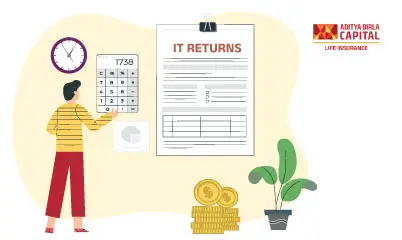Consultant vs Salaried Employee: Key Taxation Differences For You

Plan Smarter, Live Better!


- Table of Contents
FAQs
The primary difference lies in how the income is earned and treated for tax purposes. A salaried employee receives a fixed salary, often with various allowances like HRA, DA, etc., and is subject to TDS by the employer. In contrast, a consultant earns income by providing professional services to clients and must handle their taxes, including advance tax payments.
No, a consultant cannot claim the standard deduction of ₹50,000 available to salaried employees. However, consultants can claim expenses incurred during their professional services, which can effectively reduce their taxable income.
Salaried employees can avail of various tax benefits^ such as standard deduction, HRA exemption, and Provident Fund contributions, among others. These benefits are generally not available to consultants.
Yes, professional tax applies to both, but the manner of payment differs. For salaried employees, it's usually deducted by the employer, while consultants have to pay it themselves.
Consultants don't usually receive an HRA component in their income, but they can claim the entire rent paid as a business expense, subject to certain conditions.
Consultants generally don't have the option for an Employer Provident Fund (EPF). However, they can opt for a Public Provident Fund (PPF) and manage their contributions independently.
No, the tax filing process for consultants is generally more complex. Consultants usually need to maintain detailed accounts and may have to undergo an audit, depending on their income and the nature of their services.
The income tax slabs are the same for both salaried employees and consultants. However, consultants may be subject to an Alternate Minimum Tax (AMT) which is a 10% surcharge on their tax liability.
Yes, a salaried individual can also work as a consultant. However, the income from consultancy will be treated differently for tax purposes, and the individual will have to comply with the tax norms applicable to consultants for that part of the income.
Consulting a tax advisor is generally a good idea, especially for consultants who have to navigate more complex tax rules. An advisor can provide advice to maximise tax benefits^ and comply with legal requirements.
Buy ₹1 Crore Term Insurance at Just ₹575/month1
ABSLI DigiShield Plan
Life cover up to 100 years of age.
Joint Cover Option
Inbuilt Terminal Illness Benefit
Tax Benefit^
Return of Premium Option~
Life Cover
₹1 crore
Premium:
₹575/month1
Most Popular Calculator
ADV/7/24-25/929







